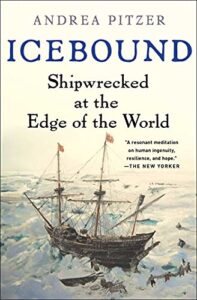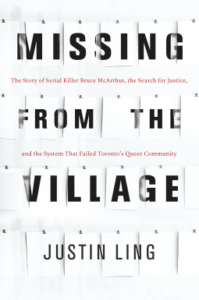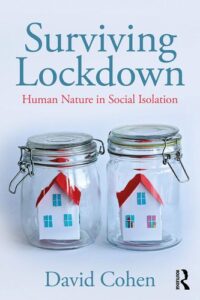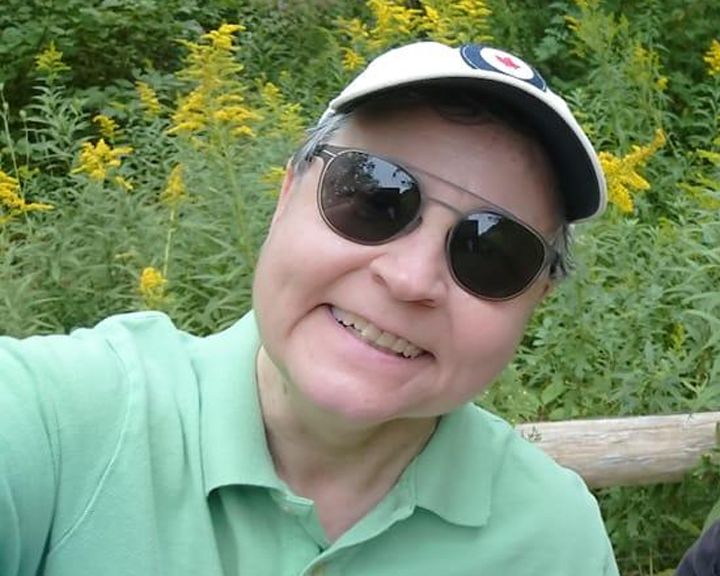Here’s a list of books I’ve read from July to September, 2022. In case it interests you, and in case I need to remember what the hell I’ve read. The following are publisher book summaries.
 Let Me Tell You What I Mean by Joan Didion
Let Me Tell You What I Mean by Joan Didion
With a forward by Hilton Als, these twelve pieces from 1968 to 2000, never before gathered together, offer an illuminating glimpse into the mind and process of a legendary figure. They showcase Joan Didion’s incisive reporting, her empathetic gaze, and her role as “an articulate witness to the most stubborn and intractable truths of our time” (The New York Times Book Review).
Here, Didion touches on topics ranging from newspapers (“the problem is not so much whether one trusts the news as to whether one finds it”), to the fantasy of San Simeon, to not getting into Stanford. In “Why I Write,” Didion ponders the act of writing: “I write entirely to find out what I’m thinking, what I’m looking at, what I see and what it means.” From her admiration for Hemingway’s sentences to her acknowledgment that Martha Stewart’s story is one “that has historically encouraged women in this country, even as it has threatened men,” these essays are acutely and brilliantly observed. Each piece is classic Didion: incisive, bemused, and stunningly prescient.
 Icebound: Shipwrecked at the Edge of the World by Andrea Pitzer
Icebound: Shipwrecked at the Edge of the World by Andrea Pitzer
The human story has always been one of perseverance—often against remarkable odds. The most astonishing survival tale of all might be that of 16th-century Dutch explorer William Barents and his crew of sixteen, who ventured farther north than any Europeans before and, on their third polar exploration, lost their ship off the frozen coast of Nova Zembla to unforgiving ice. The men would spend the next year fighting off ravenous polar bears, gnawing hunger, and endless winter.
In Icebound, Andrea Pitzer masterfully combines a gripping tale of survival with a sweeping history of the great Age of Exploration—a time of hope, adventure, and seemingly unlimited geographic frontiers. At the story’s center is William Barents, one of the 16th century’s greatest navigators whose larger-than-life ambitions and obsessive quest to chart a path through the deepest, most remote regions of the Arctic ended in both tragedy and glory. Journalist Pitzer did extensive research, learning how to use four-hundred-year-old navigation equipment, setting out on three Arctic expeditions to retrace Barents’s steps, and visiting replicas of Barents’s ship and cabin.
“A resonant meditation on human ingenuity, resilience, and hope” (The New Yorker), Pitzer’s reenactment of Barents’s ill-fated journey shows us how the human body can function at twenty degrees below, the history of mutiny, the art of celestial navigation, and the intricacies of building shelters. But above all, it gives us a firsthand glimpse into the true nature of courage.
 Missing from the Village: The Story of Serial Killer Bruce McArthur, the Search for Justice, and the System That Failed Toronto’s Queer Community by Justin Ling
Missing from the Village: The Story of Serial Killer Bruce McArthur, the Search for Justice, and the System That Failed Toronto’s Queer Community by Justin Ling
![]()
The tragic and resonant story of the disappearance of eight men — the victims of serial killer Bruce McArthur — from Toronto’s queer community, and the failures of the social and political systems which allowed the cases to go unsolved for so long.
In 2013, the Toronto Police Service announced that the disappearances of three missing men — Skandaraj Navaratnam, Abdulbasir Faizi, and Majeed Kayhan — from Toronto’s gay village were, perhaps, linked. On paper, an investigation continued for a year, but remained “open but suspended.” By 2015, investigative journalist Justin Ling had begun to put in multiple requests to speak to the investigators on the case. Meanwhile, more men would go missing, and police would continue to deny that there might be a serial killer. On January 18, 2018, Bruce McArthur, a landscaper, would be charged with three counts of first-degree murder. In February 2019, he was convicted of eight counts of first-degree murder.
This extraordinary book tells the complete story of the McArthur murders. Based on more than five years of in-depth reporting, this is also a story of police failure, of how the gay community failed its own, and the story of the eight men who went missing and the lives they left behind. In telling that story, Justin Ling uncovers the latent homophobia and racism that kept this case unsolved and unseen. This gripping book reveals how police agencies across the country fail to treat missing persons cases seriously, and how policies and laws, written at every level of government, pushed McArthur’s victims out of the light and into the shadows.
 One Bead at a Time by Beverly Little Thunder and Sharron Proulx-Turner
One Bead at a Time by Beverly Little Thunder and Sharron Proulx-Turner
![]() One Bead at a Time is the oral memoir of Beverly Little Thunder, a two-spirit Lakota Elder from Standing Rock, who has lived most of her life in service to Indigenous and non-Indigenous women in vast areas of both the United States and Canada. Transcribed and edited by two-spirit Metis writer Sharron Proulx-Turner, Little Thunder’s narrative is told verbatim, her melodious voice and keen sense of humour almost audible overtop of the text on the page. Early in her story, Little Thunder recounts a dream from her early adulthood, “I stared at these lily pads for the longest time and I decided that there was one part of the pond that had lots of lily pads and no frogs. I said, ‘I want to go there because there’s lots of lily pads but no frogs and I like creating community.'” And create community she does. Little Thunder established the first and today, the only all-women’s Sundance in the world, securing a land base in the Green Mountains of Vermont for future generations of Indigenous women’s ceremony. She was active in the A.I.M. movement and she continues to practice and promote political and spiritual awareness for Indigenous women around the world. A truly remarkable visionary.
One Bead at a Time is the oral memoir of Beverly Little Thunder, a two-spirit Lakota Elder from Standing Rock, who has lived most of her life in service to Indigenous and non-Indigenous women in vast areas of both the United States and Canada. Transcribed and edited by two-spirit Metis writer Sharron Proulx-Turner, Little Thunder’s narrative is told verbatim, her melodious voice and keen sense of humour almost audible overtop of the text on the page. Early in her story, Little Thunder recounts a dream from her early adulthood, “I stared at these lily pads for the longest time and I decided that there was one part of the pond that had lots of lily pads and no frogs. I said, ‘I want to go there because there’s lots of lily pads but no frogs and I like creating community.'” And create community she does. Little Thunder established the first and today, the only all-women’s Sundance in the world, securing a land base in the Green Mountains of Vermont for future generations of Indigenous women’s ceremony. She was active in the A.I.M. movement and she continues to practice and promote political and spiritual awareness for Indigenous women around the world. A truly remarkable visionary.
 Surviving Lockdown: Human Nature in Social Isolation by David Cohen
Surviving Lockdown: Human Nature in Social Isolation by David Cohen
2020 has been the year of the virus, and it will not be a mere footnote in history. This book reflects on the unprecedented changes to our lives and the impact on our behaviour as we lived through social isolation during the global COVID-19 pandemic. From sociable creatures of habit, we were forced into a period of uncertainty, restriction and risk, physically separated from families and friends.
Packed with guidance and coping strategies for lockdown, this book, authored by top psychologist David Cohen, explores the impact of this widespread quarantine on our relationships, our children, our mental health and our daily lives. Benedictine monks, hermit popes, Dorothy Sayers, Daniel Defoe (who made the isolated Robinson Crusoe a hero), Sigmund Freud and a rabbi’s angry dog are all among the cast of characters as we are taken on a whistle-stop tour through plagues in history and brain science, to the importance of introspection and how to make meaning from lockdown. In his trademark entertaining style, Cohen examines the psychology behind our behaviour during this unusual time to discover what we can learn about human nature, what lessons we can learn for the future – and whether we will apply them.
